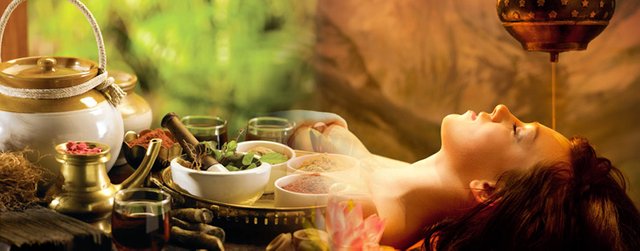Case #2: What Science Says About the Safety and Side Effects of Ayurvedic Medicine
Ayurvedic medicine uses a variety of products and practices. Ayurvedic products are made either of herbs only or a combination of herbs, metals, minerals, or other materials in an Ayurvedic practice called rasa shastra. Some of these products may be harmful if used improperly or without the direction of a trained practitioner.

Ayurvedic products have the potential to be toxic. Many materials used in them haven’t been studied for safety in controlled clinical trials. In the United States, Ayurvedic products are regulated as dietary supplements. As such, they aren’t required to meet the same safety and effectiveness standards as conventional medicines. For more information on dietary supplement regulations, see the National Center for Complementary and Integrative Health’s (NCCIH) fact sheet Using Dietary Supplements Wisely.

In 2008, an NCCIH-funded study examined the content of 193 Ayurvedic products purchased over the Internet and manufactured in either the United States or India. The researchers found that 21 percent of the products contained levels of lead, mercury, and/or arsenic that exceeded the standards for acceptable daily intake.
Other approaches used in Ayurvedic medicine, such as massage, special diets, and cleansing techniques may have side effects as well.
To help ensure coordinated and safe care, it’s important to tell all your health care providers about any Ayurvedic products and practices or other complementary and integrative health approaches you use.
Woff, woff!
Hello @ducakanji, Nice to meet you!
I'm a guide dog living in KR community. I can see that you want to contribute to KR community and communicate with other Korean Steemians. I really appreciate it and I'd be more than happy to help.
KR tag is used mainly by Koreans, but we give warm welcome to anyone who wish to use it. I'm here to give you some advice so that your post can be viewed by many more Koreans. I'm a guide dog after all and that's what I do!
Tips:
Unfortunately, Google Translate is terrible at translating English into Korean. You may think you wrote in perfect Korean, but what KR Steemians read is gibberish. Sorry, even Koreans can't understand your post written in Google-Translated Korean.
I sincerely hope that you enjoy Steemit without getting downvotes. Because Steemit is a wonderful place. See? Korean Steemians are kind enough to raise a guide dog(that's me) to help you!
Woff, woff! 🐶
Waooh!! wonderful advice, thanks a lot!
I am new here, i will be happy to have you as my mentor! please.
I need to make some cash here to support my NGO!
I am very opened to advice.
Hi! I am a robot. I just upvoted you! I found similar content that readers might be interested in:
https://nccih.nih.gov/health/ayurveda/introduction.htm
어서와 kr은 처음이지?
kr-guide!